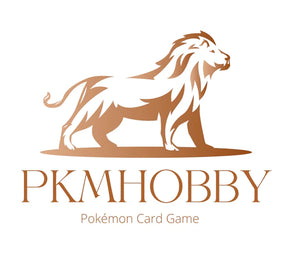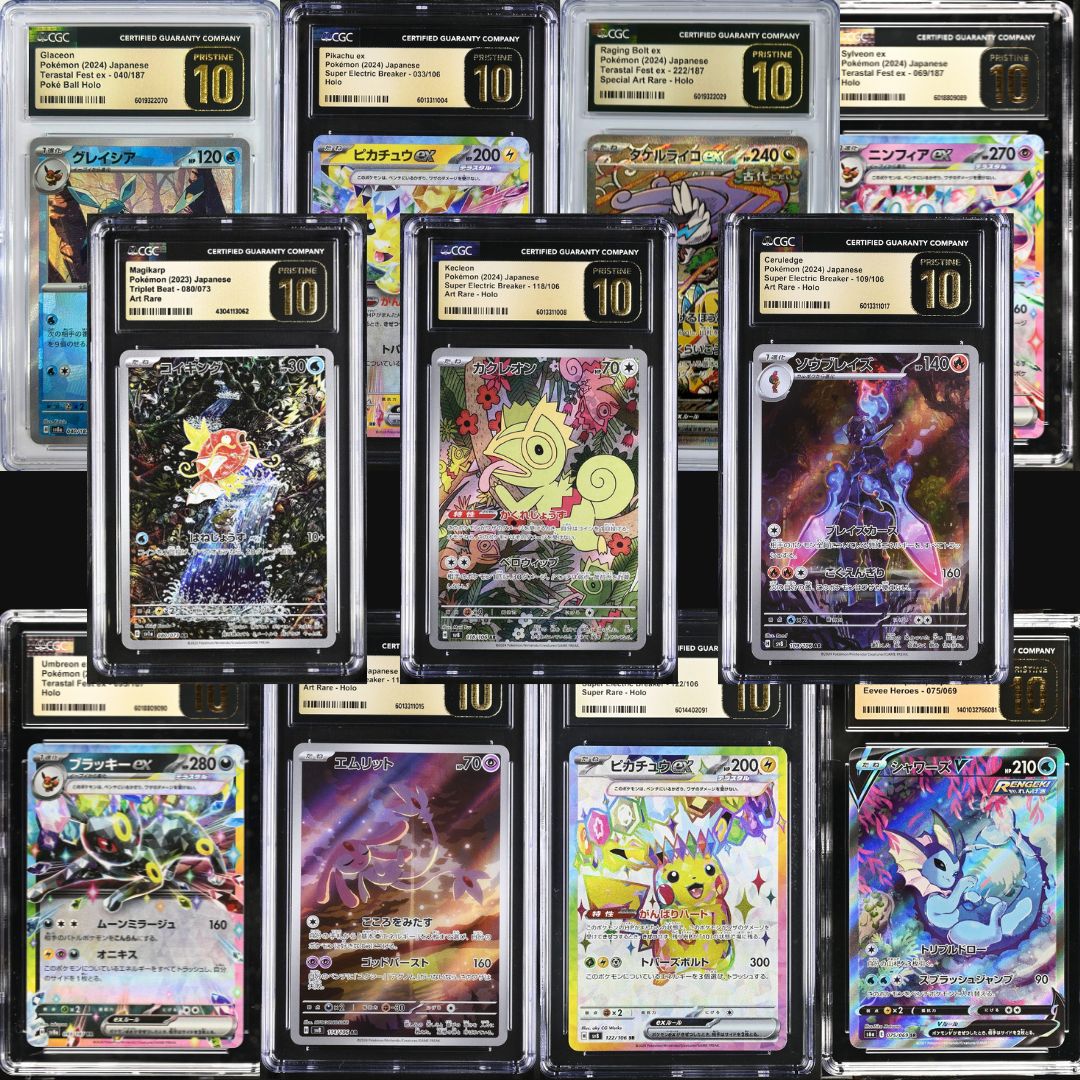If you're a collector or investor in trading cards, grading is one of the most critical factors in determining a card’s value. Two of the biggest names in the grading industry are CGC (Certified Guaranty Company) and PSA (Professional Sports Authenticator). But which one should you choose for your cards?
This article will break down the differences between CGC and PSA, including their grading processes, turnaround times, resale values, and more. By the end, you'll have a clear idea of which grading service suits your collection best.
What is CGC?
Brief History and Background
CGC, originally known for grading comic books, expanded into trading card grading in 2020. The company quickly gained popularity due to its detailed grading system and transparent process.

CGC’s Grading Process
CGC grades cards on a 10-point scale, similar to PSA, but with more half-point grades to provide better accuracy. Their grading breakdown includes:
- Pristine 10 – The highest possible grade
- Gem Mint 10 – Near-perfect condition
- 9.5, 9.0, 8.5, etc. – Various levels of near-mint to excellent condition
CGC is known for its strict grading and provides sub-grades (centering, surface, edges, and corners) on higher-tier services.
Features of CGC Slabs
- Clear and modern-looking slabs
- Tamper-proof and UV-resistant material
- Blue labels for standard grading, black for Perfect 10
Pros and Cons of CGC Grading
✅ More detailed grading system with half-point increments
✅ Lower grading costs compared to PSA
✅ Faster turnaround times
❌ Lower resale value than PSA
❌ Newer brand, less established reputation
What is PSA?
Brief History and Background
PSA is the most well-known card grading company, having graded cards since 1991. It is the gold standard for sports and Pokémon card collectors.
PSA’s Grading Process
PSA also uses a 10-point scale, but their grading is more traditional:
- PSA 10 (Gem Mint) – Perfect card with no flaws
- PSA 9 (Mint) – Minor imperfections
- PSA 8 (Near Mint-Mint) – Noticeable but small defects
PSA does not provide sub-grades like CGC.
Features of PSA Slabs
- Classic red label
- Tamper-proof and scratch-resistant slabs
- Widely recognized in auctions and resale markets
Pros and Cons of PSA Grading
✅ Higher resale value than CGC
✅ Most trusted name in grading
✅ Widely accepted in auctions and marketplaces
❌ Longer turnaround times
❌ More expensive than CGC
CGC vs PSA – Key Differences
Grading Scale and Accuracy
- CGC uses more precise sub-grades, while PSA keeps a simplified system.
- CGC is often considered stricter, leading to lower overall grades compared to PSA.
Slab and Label Design
- CGC slabs are crystal clear, modern, and have a sleek design.
- PSA slabs are more classic-looking, with a traditional red label that is instantly recognizable.
Market Value and Resale Prices
- PSA-graded cards sell for more due to brand trust.
- CGC is growing but still has a lower resale value compared to PSA.
Turnaround Time and Pricing
- CGC has faster turnaround times and is generally cheaper.
- PSA is slower but holds its value better.
Popularity and Community Trust
- PSA dominates in Pokémon, sports, and Magic: The Gathering.
- CGC is gaining ground but is still newer in the grading market.
When to Choose CGC Over PSA
- If you want a more affordable grading option
- If you need faster turnaround times
- If you prefer more transparent grading with sub-grades
When to Choose PSA Over CGC
- If you’re looking for higher resale value
- If you want a universally trusted grading service
- If you’re planning to sell cards at auction houses
Conclusion
Both CGC and PSA have their strengths and weaknesses. If you're grading for resale value, PSA is the better choice. However, if you're looking for a more affordable, quicker, and detailed grading process, CGC is worth considering. Ultimately, your decision should depend on your collection goals, budget, and patience.
FAQs
1. Which grading service is better for Pokémon cards?
PSA is currently the most trusted for Pokémon cards, but CGC is growing in popularity.
2. Does CGC grading affect card value compared to PSA?
Yes, PSA-graded cards typically have higher resale values than CGC-graded cards.
3. Which grading company has a faster turnaround time?
CGC generally offers faster grading services compared to PSA.
4. Are CGC-graded cards accepted in major auctions?
Yes, but PSA-graded cards are more commonly accepted in high-value auctions.
5. Can I cross-grade CGC cards to PSA?
Yes, but PSA may downgrade the card if their standards are different from CGC’s.





